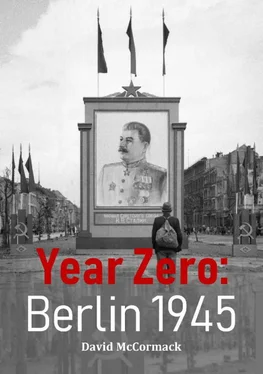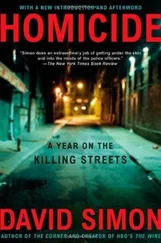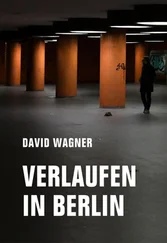Heinrici’s command did not get off to a good start, as a hastily prepared attack launched towards Kustrin on Hitler’s orders ended in a costly failure. The most high profile casualty of the Kustrin débâcle was Guderian who was sacked on 28 March after a particularly stormy Fuhrer conference. Despite Guderian’s dismissal, Heinrici still succeeded in gaining approval for a multi-layered defence of the eastern approaches to Berlin. Within a few short weeks, this exceptional defensive tactician and organiser worked miracles in transforming the German defences along the crucial central sector on the Seelow Heights. Heinrici was determined that Zhukov’s forces would face a hard fight to secure the easterly approaches to Berlin.
Chapter Three
Youthful Indifference – Brigitte Eicke
In Hitler’s Germany, the isolation of the Jewish community was accomplished within two years of the regime coming to power. Even before the promulgation of the Nuremberg laws for the protection of ‘Blood and Honour’ in 1935, Jews were already being shunned and marginalised. The so-called ‘Night of the Broken Glass’ in 1938 forever blurred the boundaries between persecutors and bystanders. To some degree, it is possible to understand the apathy of bystanders who saw their Jewish classmates, colleagues and neighbours disappear. Nazi Germany was a totalitarian state which imposed strict codes of conduct upon its regimented population. In his seminal book Perpetrators Victims Bystanders, historian Raul Hilberg noted that, ‘It was difficult to revolt against established order in a society where people were more likely to revolt against revolution’. For every Fritz Elsas there were perhaps a thousand people whose daily concerns were far more important to them than the knowledge that murder was being carried out in their name.
Berlin teenager Brigitte Eicke began writing a diary in December 1942. She didn’t share Anne Frank’s ambitions to be a writer, her diary simply being a means to practice her shorthand skills as she trained to be a secretary. Nonetheless, her record is an authentic document of life in a world torn apart by war. Whilst Anne’s diary is a beautifully crafted tragedy written in a novelistic style, Brigitte adopts a more matter-of-fact approach. By juxtaposing their diary entries, it is possible to bring into focus the sharp contrast in their daily lives:
Brigitte Eicke – 13 January 1943
Mother whined as usual, there are some days when we get on terribly.
Anne Frank – 13 January 1943
Outside it is terrible. Day and night the poor people are being dragged away, with nothing more than a rucksack and a little money… there’s nothing more for us to do than to wait as quietly as possible for the end of our misery. The Jews wait, the Christians wait, and many more wait for their death.
Brigitte Eicke – 11 May 1944
Went in BDM uniform to the Admiralspalast to see Madame Butterfly. It was wonderful, my first opera.
Anne Frank – 11 May 1944
After the war I definitely want to publish a book with the title ‘The House Behind’. It is questionable whether it will appear, but my diary will serve as the basis.
Brigitte Eicke – 20 July 1944
Sunned myself on the roof. Failed assassination attempt on the Fuhrer. In the night we heard the speeches of the Fuhrer, Doenitz and Goering. Wonderful.
Anne Frank – 20 July 1944
Great news! There was an assassination attempt on Hitler… Sadly ‘divine providence’ saved the Führer’s life and he survived with a few grazes and scorch wounds.
Brigitte Eicke – 1 August 1944
It rained all day. We had a nap in the afternoon and were in bed already by 10. It’s a shame, such a waste of a lost evening.
Anne Frank – 1 August 1944
Dear Kitty… I’ve often told you that my soul is divided in two. One side contains my boisterous happiness… (and) squeezes out the other, much nicer, side that is more pure and deep. Nobody knows the nice side of Anne…
The banality of Brigitte’s diary entries demonstrate that politics held little fascination for her. Whilst world changing events were taking place all around her, she largely focused on the trivia of everyday life. The following entry from 27 February 1943 concludes with an aside about the deportation of Berlin’s Jews:
Waltraud and I went to the opera to see ‘The Four Ruffians’. I had a ticket for Gitti Seifert too. What a load of nonsense, it was ridiculous. We walked back to Wittenbergplatz and got the underground to Alexanderplatz. Three soldiers started talking to us. Gitti is so silly, she went all silent when they spoke to her. The least we can do is answer, even though we weren’t going to go anywhere with them. Jews all over the place are being taken away, including the tailor across the road.
The tailor which Brigitte alludes to worked in the Hackescher Markt which was located within Berlin’s pre-war Jewish district. Brigitte and her mother lived in an apartment on Immanuelkirchstrasse, a stones throw from the Rykestrasse Synagogue and Jewish cemetery in Kollwitzkiez. However, her youthful indifference was such that she saw nothing. Her life was as far removed from the experience of Anne Frank as it was possible to be.
In 2015, Brigitte was interviewed following the publication of her diary. When asked to explain her apathy, she replied, ‘I was busy with my own life… I can’t remember if we learned where they’d gone. We young people were indoctrinated to believe in the good of the regime to the end’. The historian Ian Kershaw once wrote that, ‘The road to Auschwitz was built by hate, but paved with indifference’. Brigitte swam with the tide, her decision to join the Nazi Party in March 1944 was not out of political conviction, but from peer pressure. Brigitte was neither a perpetrator, nor a victim, she was merely a very small cog in the machine which powered the Nazi state.
By late 1944, this small cog had completed her secretarial training and was working for an Aryanised chain of department stores. Whilst Hitler was planning his desperate gamble in the Ardennes, Brigitte fretted about a disastrous perm. Her carefree existence went on, even as Soviet troops were digging-in on the Oder. In a 2 March 1945 diary entry, she wrote, ‘Margot and I went to the Admiralspalast to see ‘My Gentleman Son’. It was such a lovely film, but there was a power cut in the middle of it. How annoying’. Brigitte later witnessed the battle for Berlin and the downfall of the Nazi regime. On 2 May 1945, she wrote:
At 3 am Frau Schobs came into the cellar and said, ‘The Fuhrer is dead, the war is over’. I could only let out a scream… We went out onto the street and all the soldiers were withdrawing, it was so sad.
Brigitte was spared the terrible ordeal suffered by so many young girls and women at the hands of Soviet troops. She was also spared the fate of Anne Frank who succumbed to typhus in the filth of Bergen-Belsen in February 1945.
Within weeks of the Soviet authorities assuming control in Berlin, Brigitte forgot about her Nazi past and became a member of an anti-Fascist youth organisation. Once again, she was prepared to swim with the tide, albeit without much enthusiasm. In a July 1945 entry, she wrote, ‘I get the impression that they want the same thing as the Nazis, just under another name’. Whilst her diary may on first reading appear somewhat banal, it does open a window upon the most basic human instinct, survival.
Chapter Four
An Interesting Proposition at the Hotel Adlon
In 1905, wine merchant, coffee house owner, gastronome and hotelier Lorenz Adlon successfully lobbied the Kaiser for the construction of a first class hotel to rival those in London and Paris. His chosen location, close to the Brandenburg Gate was already occupied by the Palais Redern, a neoclassical style building designed by the noted architect Karl Schinkel and named after Count Wilhelm von Redern, who in 1828 became artistic director of the National Theatre. Following the Kaiser’s intercession, this fine building was demolished to make way for the new hotel. Designed by Carl Gause and Robert Leibnitz, the Hotel Adlon was completed at a cost of twenty-million gold marks. Behind a rather sober façade, the sumptuous interior was decorated in neo-baroque and Louis XVI styles. The hotel also boasted modern amenities including central heating, lifts and telephones.
Читать дальше












